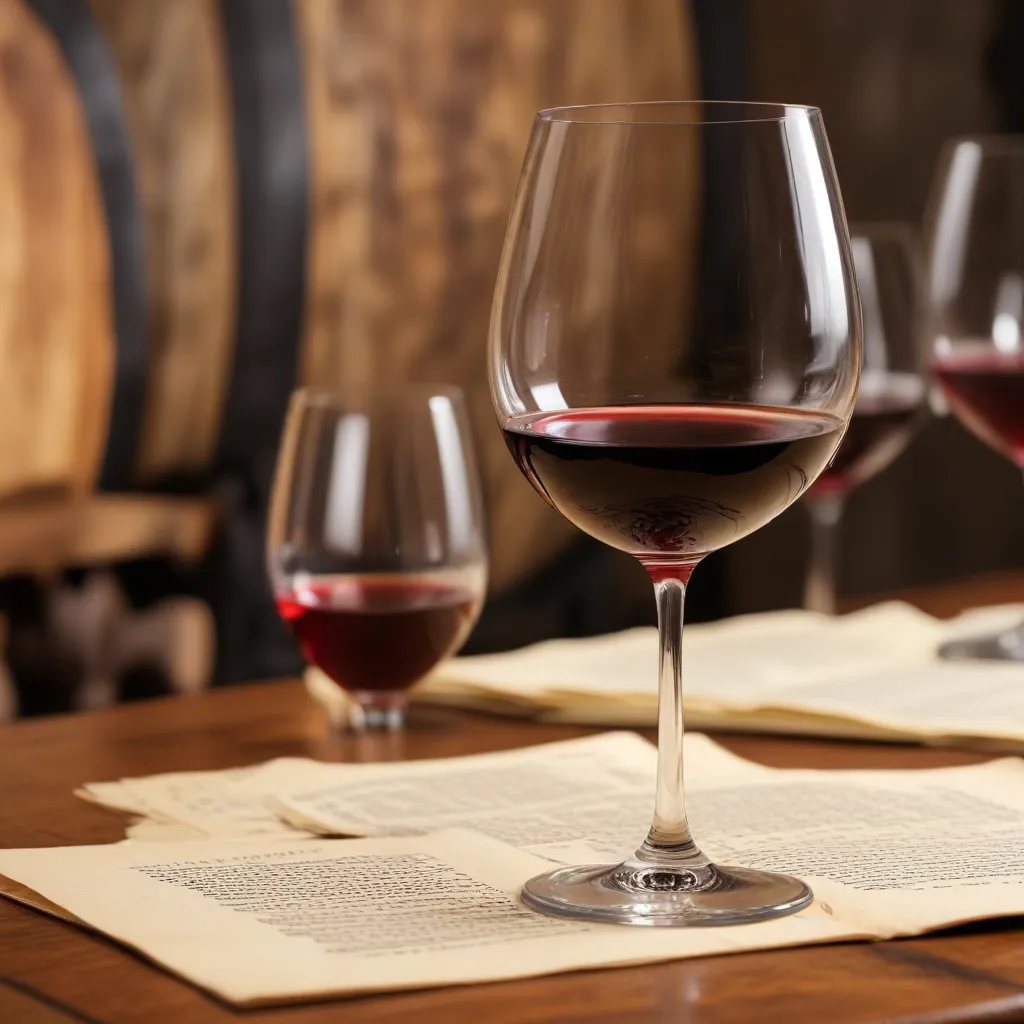
Exploring the world of wine can be a delightful, and at times, daunting endeavor. While professional tasting notes may seem like a secret language, unlocking the ability to thoughtfully describe the aromas, flavors, and textures of a wine is a skill that any wine enthusiast can cultivate. At the Wine Garden Inn, we believe that developing your descriptive abilities is the key to unlocking a deeper appreciation for the art of winemaking.
Sensory Evaluation
The foundation of any insightful wine tasting note lies in the systematic evaluation of a wine’s visual characteristics, aroma profiles, and flavor profiles. By approaching each wine with a methodical yet open-minded approach, you can train your senses to pick up on the nuanced details that make each vintage unique.
Visual Characteristics
Begin your tasting by observing the wine’s appearance in the glass. Take note of the color, intensity, and any subtle hues or variations. Is the wine clear and brilliant, or does it have a cloudy or murky appearance? Examining the wine’s viscosity, or “legs,” as it coats the sides of the glass can also provide clues about the wine’s alcohol content and body.
Aroma Profiles
Next, gently swirl the wine to release its volatile compounds, and take several deep, mindful inhalations. What aromas immediately jump out at you? Do you detect notes of fruit, flowers, spices, or perhaps even more complex scents like tobacco, leather, or earth? Pay attention to how the aroma evolves as the wine opens up in the glass.
Flavor Profiles
Finally, take a small sip of the wine, allowing it to coat your entire palate. What flavors do you perceive? Is the wine dry and austere, or does it exhibit a lush, fruit-forward character? Consider the wine’s balance between sweetness, acidity, tannins, and alcohol. Observe how the flavors develop and linger on the finish.
Descriptive Vocabulary
As you refine your wine tasting skills, developing a robust descriptive vocabulary is crucial. This goes beyond simply identifying broad categories like “fruity” or “spicy.” Instead, strive to provide more specific, objective descriptions.
Objective Descriptions
When describing a wine’s aromas and flavors, aim for precise, evocative language. For example, instead of “berry-like,” you might note “ripe blackberries” or “tart, underripe raspberries.” Rather than “oaky,” consider “toasted vanilla,” “charred cedar,” or “dill and caraway.” By honing in on specific reference points, you can paint a clearer picture of the wine’s character.
Subjective Impressions
In addition to objective descriptions, it’s perfectly acceptable to include more subjective, personal impressions of a wine. Perhaps the wine reminds you of a walk through a sun-dappled orchard, or the flavors evoke a memory of your grandmother’s homemade jam. Don’t be afraid to draw connections to your own experiences and emotions.
Comparative Assessments
As your wine tasting repertoire expands, you may find it helpful to make comparative assessments between different wines. How does this Chardonnay differ from the one you tried last month? Is this Pinot Noir more or less structured than the one you had with dinner last night? Making these types of comparisons can deepen your understanding of a wine’s unique profile.
Tasting Technique
Mastering the art of wine tasting requires not just a keen sense of observation, but also proper technique. The way you approach the wine in the glass can greatly influence your ability to perceive its nuances.
Proper Glassware
Using the appropriate glassware is essential for optimizing a wine’s aroma and flavor. Invest in a set of varietal-specific wine glasses that are designed to enhance the wine’s unique characteristics. The shape and size of the glass can significantly impact how the wine’s volatile compounds are released and interact with your senses.
Systematic Approach
When tasting a wine, follow a consistent, step-by-step process. Begin by observing the wine’s appearance, then move on to the aroma evaluation, and finally, taste the wine. Take your time with each phase, allowing your senses to fully engage with the wine’s complexity.
Mindful Observation
Approach each wine tasting with an open and attentive mindset. Avoid distractions, and focus your full attention on the wine in the glass. Engage all of your senses, and don’t be afraid to experiment with different techniques, such as swirling the wine or sipping it at various temperatures.
Developing Descriptive Abilities
Honing your wine tasting skills is a journey of constant exploration and practice. By immersing yourself in the world of wine, you’ll gradually build a expansive vocabulary and a deeper understanding of the factors that contribute to a wine’s unique character.
Consistent Practice
The more wines you taste, the more familiar you’ll become with the diverse array of aromas, flavors, and textures that can be found in the bottle. Make a habit of tasting a variety of wines, even those outside your typical preferences. With each new experience, your descriptive abilities will continue to evolve.
Exploring Diverse Wines
Seek out opportunities to try wines from different grape varieties, regions, and production methods. This will not only broaden your wine knowledge but also expose you to a wider range of sensory experiences. Consider joining a local wine tasting group or attending oenology workshops to expand your horizons.
Referencing Tasting Resources
In addition to your own observations, utilize various resources to refine your wine tasting vocabulary. Peruse wine reviews, consult flavor wheels, or reference comprehensive tasting guides. These tools can provide valuable inspiration and help you identify specific aromas and flavors that you may have previously overlooked.
At the Wine Garden Inn, we believe that the art of wine tasting is a lifelong pursuit, one that offers endless opportunities for discovery and growth. By cultivating your descriptive abilities, you’ll not only deepen your appreciation for the world of wine but also unlock a new level of enjoyment with every sip. So pour a glass, engage your senses, and let the journey of wine tasting begin.
